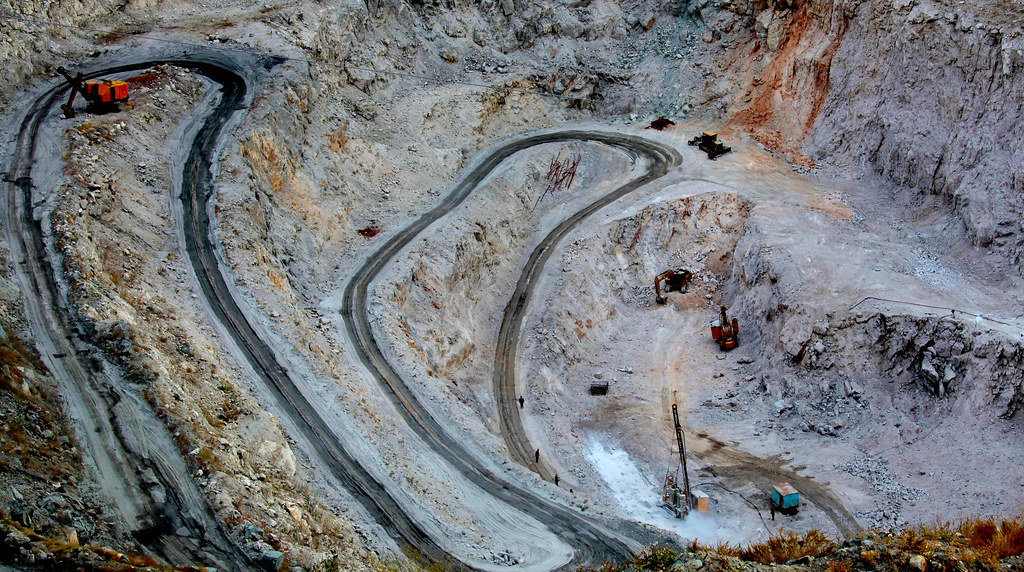Why China Targets Afghanistan’s Critical Metals

China could invest large sums in Afghanistan's lithium deposits. But not only that: the country has deposits of other critical metals, such as copper and rare earths. Geographical proximity is an important advantage for Beijing, but the infrastructures are lacking
According to reports by the Afghan news agency The Khaama Press , a Chinese company, Gochim, has shown interest in investing 10 billion dollars in the exploitation of Afghanistan's lithium reserves. Lithium is an essential, or "critical" metal for the energy transition: it is used in the batteries that power electric vehicles and which allow the storage of the energy generated by wind and photovoltaic plants.
The Ministry of Mines and Oil of the Taliban government, Shahabuddin Delawar, met in Kabul with Gochim's representatives in recent weeks. It is estimated that Chinese investment in the Afghan lithium sector will create 120,000 direct jobs and one million indirect jobs.
NOT ONLY MINES, BUT ALSO REFINERIES AND ROADS
It seems that Gochim does not just want to extract the raw lithium, but also intends to open a refining plant powered by a new hydroelectric plant.
In addition to the production and energy plants, then, the company will build a whole series of transport infrastructures, given the poor state of logistics in the country: it will pave the roads and improve the Salang pass (the mountain pass that connects the north of Afghanistan to the capital Kabul) within seven months, in addition to opening a new gate.
HOW MUCH IS AFGHAN LITHIUM WORTH
The leading Indian financial newspaper, the Economic Times , writes that Chinese companies have been considering investing in Afghan lithium for a long time: according to some estimates, the country's deposits could be worth a trillion dollars.
The first major Chinese investment in Taliban-controlled Afghanistan occurred last January, when the CPEIC signed a 25-year agreement with the government to extract oil from the Amu field.
THE CRITICAL METALS OF AFGHANISTAN
The subsoil of Afghanistan is not only rich in lithium but also in precious metals (gold and platinum), copper (necessary for the construction of electric cables), and rare earths (a group of seventeen elements present in electronic devices , in electric cars and in weapon systems).
China is a major importer of copper, lithium and rare earths. The Afghan reserves are particularly attractive to her, not only because of their size but also because of their geographical proximity. By reversing the parties, Beijing's interest is convenient for the Taliban, because they need foreign investment to support and consolidate their government.
Already in 2007 the Chinese state-owned mining company China Metallurgical Group had obtained a thirty-year contract from the Kabul government for the exploitation of the copper deposits of Mes Aynak , near an ancient Buddhist city. The Mes Aynak reserves, among the largest in the world, could contain 5.5 million tons of high-grade copper. Nonetheless, the lack of "surrounding" infrastructure – no motorways, nor roads suitable for the passage of trucks – made the development of the project quite difficult.
CHINA'S MOVES FOR RARE EARTHS
China concentrates 85 percent of its rare earth refining capacity in its hands, an indispensable step for their industrial use, but has less than 20 percent of the reserves of these elements. Consequently, to fuel its refineries it needs to import large quantities of raw minerals from abroad: in 2021, in fact, it imported 40 percent more raw rare earths.
To compensate for insufficient internal production – explained Quartz -, companies in the Chinese rare earth supply chain are increasing investments in supplies of raw materials abroad, signing long-term supply contracts.
The rare earths are mainly extracted, as well as in China itself, in Australia, in the United States and in Myanmar. However, Canberra and Washington are not a viable option for Beijing, given the political tensions with both countries. Afghanistan, on the other hand, could contribute to the Communist Party's plans for security of supplies.
This is a machine translation from Italian language of a post published on Start Magazine at the URL https://www.startmag.it/energia/cina-litio-afghanistan/ on Sat, 29 Apr 2023 05:59:32 +0000.
